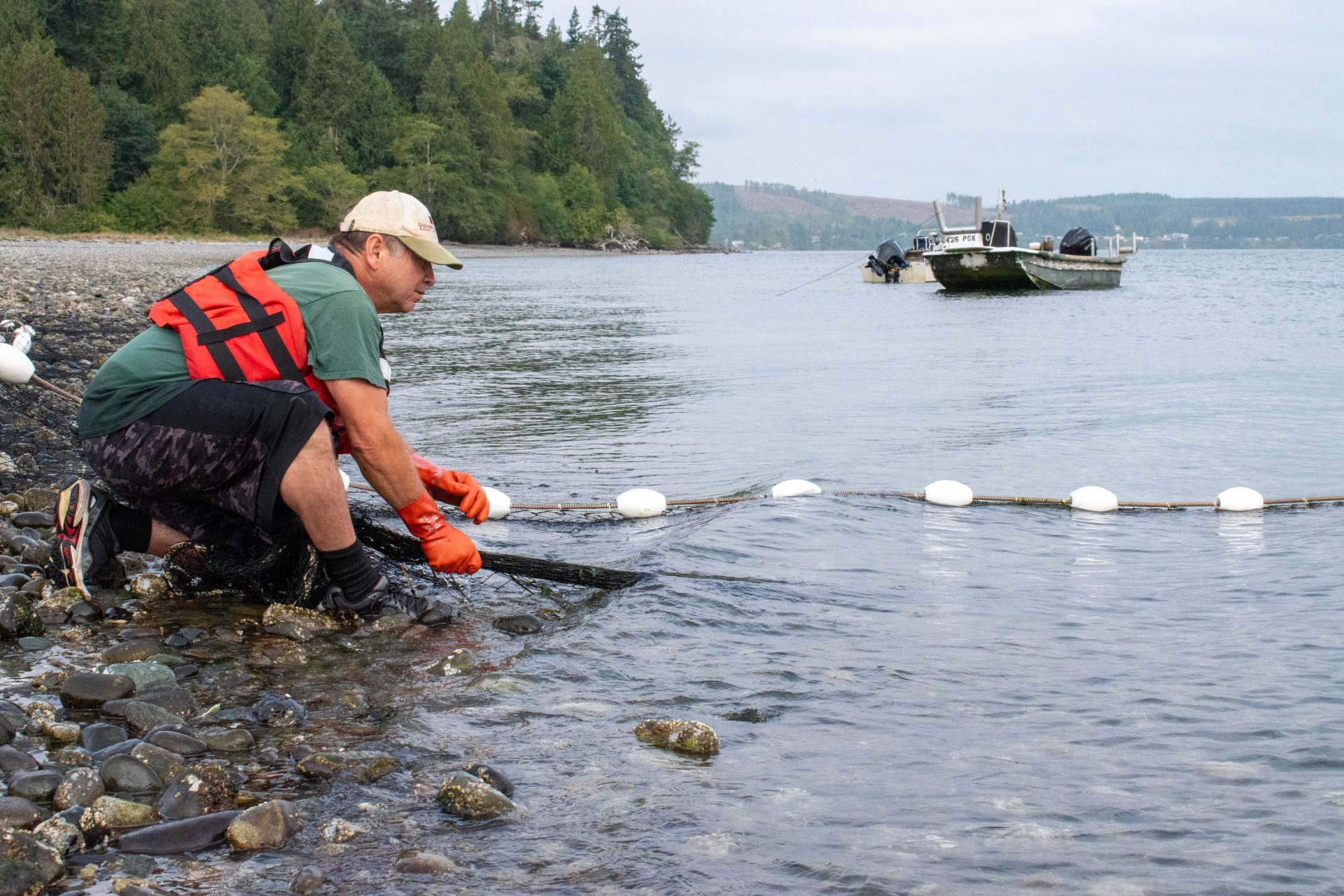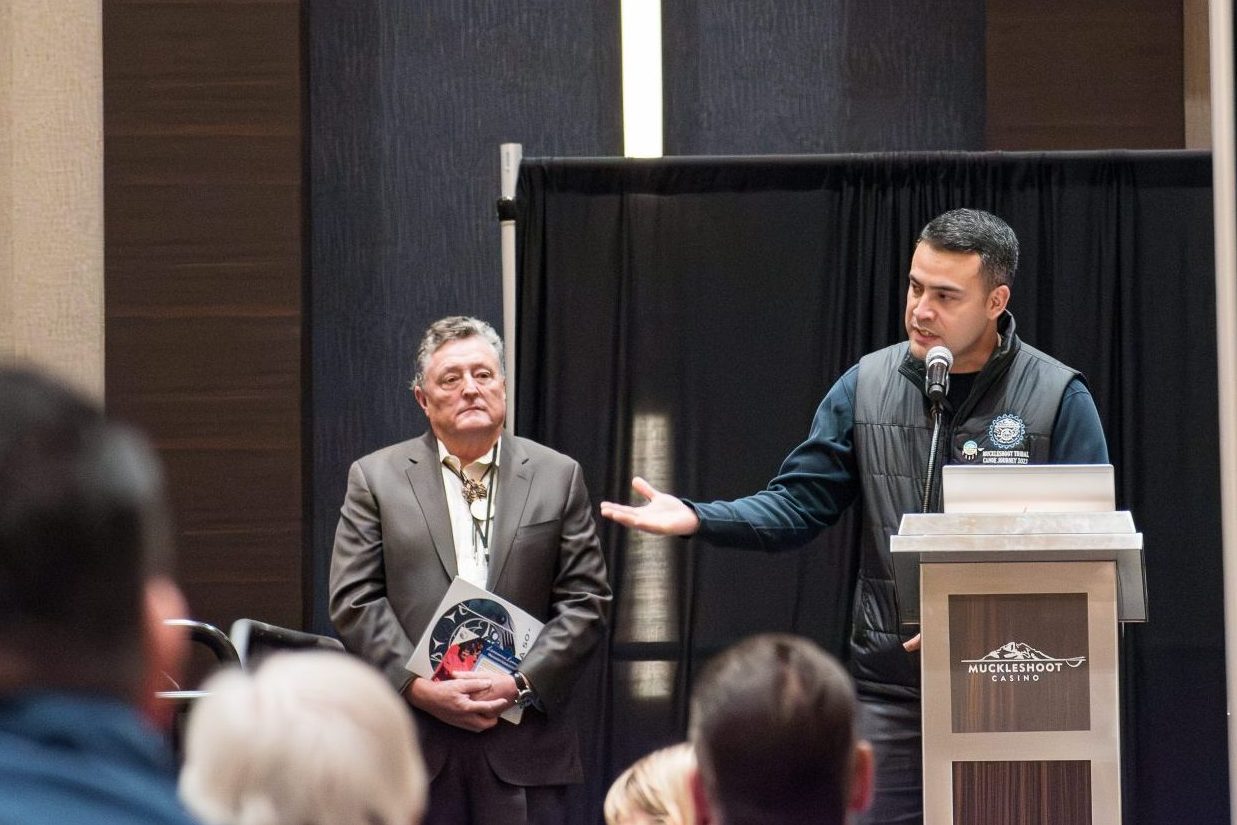D’s AT THE HELM
PELOSI FIRST WOMAN SPEAKER
When Democrats seized control of Congress for the first time in 12 years, they did so with a jubilant Rep. Nancy Pelosi, D-CA, becoming the first woman ever to rise to speaker of the House. Rep. Pelosi will exert vast influence over the congressional agenda and stands second in the line of succession to the presidency. In her first step as speaker, she orchestrated bipartisan passage of a measure banning lawmakers from accepting gifts and free trips from lobbyists and discounted trips on private planes. Under her leadership, the House has started off with an ambitious reform agenda that takes on some very powerful interests, including big oil companies. They and other right wing lobbying interests have been swarming Capital Hill. Big oil alone has launched a $100 million dollar PR campaign. How Congress can weather such forces remains to be seen, but so far the leadership of the 100th Congress has, in a word, been bold.
INITIAL AGENDA
Democratic leaders in both chambers plan to work for the first seven weeks of the year, foregoing the traditional break before the President’s annual State of the Union address (expected on January 23). As part of House Democrats’ initial agenda, they have been tied up considering legislation they consider priority, such as raising the minimum wage, implementing additional 9/11 commission recommendations and reducing student loan interest rates. They are also working to curtail some oil and gas subsidies. Democrats left in place, for now, a GOP rule limiting committee chairmen to three two-year terms. Another rule change, adopted 430-0, would curb past abuses in which GOP leaders held votes open for hours and excluded Democratic lawmakers from House-Senate negotiations on the language of final bills sent to the White House for enactment. House Republicans are accusing Democrats of reneging on their pledge to give minority Republicans a role in shaping legislation, as the initial agenda has not been going through committees.
D’s TALKING TOUGH ON THE BUDGET
The 110th Congress convened January 4, and immediately faced a lengthy to-do list, including the completion of last year’s spending bills, which have at least temporarily been wrapped up in a continuing resolution (status quo funding) and a “Paygo” (pay-as-you-go) package. Any efforts to acquire additional funding will require strong focus and enduring effort. Members of Congress who propose additions to the status quo budget for projects benefiting their home state will, in most cases, be required to propose new taxes or other means to pay for them. “Today, we are cutting our national credit card,” said Rep. Heath Shuler, D-N.C., during floor debate. To underscore the point, he cut a credit card in half at a news conference populated by moderate-to-conservative “Blue Dog” Democrats who are most responsible for implementing the rule. Ranking Republican on House Budget Paul D. Ryan of Wisconsin wrote incoming Chairman John M. Spratt Jr. of South Carolina yesterday to request a hearing and markup of the PAYGO package.
SETTLEMENT ON CONTINUING RESOLUTION PREDICTED
The top House Democratic appropriator says he expects lawmakers will agree on a continuing resolution to fund the government through the end of FY 2007 before the current resolution expires next month. But that task will not be easy because of the limited room to increase spending from FY 2006 levels and the many voices seeking additional money for favored programs. “In the end, we’ll make some mistakes,’’ says Appropriations Chairman David R. Obey, D-WI. “And in the end, whatever we do we’ll leave an absolute mess because you can’t correct it within the confines of the Republican budget resolution,” he added, referring to the $873 billion cap for fiscal 2007 discretionary spending. Obey and his Senate counterpart, Robert C. Byrd, D-WV, have said they plan to handle the outstanding FY 2007 spending bills in a single measure, rather than trying to pass them individually. Obey says he hopes lawmakers will finish the process by Feb. 15, the date the current resolution expires (PL 109-383). Still, he conceded that outside factors could slow their work. He said leaders are starting with the FY 2006 baseline, then examining which programs most need additional money. Obey confirmed that the committees have received many requests for exemptions from the previous year’s funding level.
REGARDING CONTINUING RESOLUTIONS AND EARMARKS
With the adoption of a continuing resolution on the federal budget pending, some federal budgets are likely to either receive the lowest funding level from the House-approved budget, the Senate-approved budget or the budget enacted by Congress in the most recent fiscal year (FY 2006). Supposedly, neither lobbyists, special interests, rank-and-file congressional members nor, for the most part, the White House could change the amounts. But 2006 and 2007 are unconventional years in the chronicle of government budgeting. Congress may settle on flat funding of all federal programs, at least until February 15, possibly followed by more of the same until October with the commencement of the next fiscal year, except for those programs to which special adjustments are made. Special adjustments could, in fact, make for the most detailed CR on the federal budget since Congress began to rely on them in 1994. The specter of special adjustments, of course, reopens the door to high-stakes lobbying from every direction, even though the Democratic budget leadership team has stated in strong terms that they contemplate only ”limited adjustments.” The focus on funding levels, in effect, places a moratorium on earmarks—at least until Congress can pass reforms on lobbying practices.
Earmarks are the special spending provisions that congressional members can insert, anonymously and without debate, into appropriations bills. They almost always favor projects in a lawmaker’s home state or constituency. They are fully constitutional, in that the Constitution gives Congress the power of the purse. And they are popular with lawmakers and the general public for obvious reasons. But they have ballooned from a few hundred in the 1970’s to more than 15,000 in the last session.
NORTHWEST
With only two of the eleven congressional budgets passed last session, and with the budget restraining policies being professed so far this year, the level of funding forthcoming from this year’s session still remains somewhat in question. Tribes had been assured by the Northwest congressional delegation that everything possible would be done to help secure tribal requests—particularly those connected with the House and Senate Science, State, Justice and Commerce committees. The largest issue of interest continues to be the Pacific Coastal Salmon Recovery Fund. The House proposed funding is at a measly $20 million while the Senate proposal is at $90 million. One of those amounts could potentially prevail, although the status quo level may also continue to be in effect this year if a Continuing Resolution continues to be retained. (For information on other specific appropriations issues, please see prior editions.)
DISCLOSURE/SCANDALS
House lawmakers passed a Democratic proposal to require lawmakers to disclose publicly the pet projects — referred to as earmarks in legislative terms — they want for their districts or states, such as “Alaska’s bridge to nowhere” in the 109th Congress. The emphasis on earmark reform came in the wake of the Randy “Duke” Cunningham scandal, in which the former California GOP congressman pleaded guilty to corruption charges for channeling earmarks to defense contractors in exchange for $2.4 million in bribes.
CAMPAIGN DONATIONS
Nationwide, tribal contributions in 2005-06 elections dropped about 30% from 2003-04 levels—ending six years of sharp increases—apparently a backlash from the Jack Abramoff scandal. Abramoff, a lobbyist who admitted directing tribal clients to give lawmakers millions to sway legislation and policy, plead guilty in January of last year. The tribes were not implicated in the criminal probe but were stung by the scrutiny of their politicking. (Please see attached related article regarding a recent defeat in the Senate of an effort to single out tribes for campaign donation limitations.)
BUSH SIGNS MAGNUSON-STEVENS REAUTHORIZATION ACT
President Bush signed into law HR 5946, the “Magnuson-Stevens Fishery Conservation and Management Reauthorization Act of 2006” on January 12. Upon signing, Bush said in a printed statement that the act “sets a firm deadline to end over-fishing in America; contributes to replenishing America’s fish stocks; strengthens enforcement of America’s fishing laws; and implements international agreements on fishery management and the protection of polar bears.” He also said the executive branch would implement the act consistently with his authority to conduct foreign affairs, and he specifically emphasized the significance of the High Seas Driftnet Fishing Moratorium, as well as Marine Mammal Protection as enacted by the act. He also specified the importance of the act as it relates to notifications/entry and transit of specified portions of the US Exclusive Economic Zone (in a manner consistent, to the maximum extent permissible, with treaties and other international obligations to which the US is a party.)
HR 5946, sponsored by former Congressman Richard Pombo, was passed on December 7, 2006.
TRIBAL LEADERS STRATEGY SESSION
The National Congress of American Indians will host a tribal leaders strategy session to work with Indian Country in setting a national tribal agenda for the 110th Congress on January 23-24. The special session will focus largely on tribal opportunities in government contracting, and will be conducted in the Holiday Inn on The Hill in Washington D.C. For more details on this or other NCAI programs and events, please consult www.ncai.org or NCAI Government Affairs Director Heather Dawn Thompson at (202) 466-7767 or [email protected].
STATE OF INDIAN NATIONS ADDRESS
NCAI President Joe Garcia will deliver the 5th annual State of Indian Nations Address on January 25 from the National Press Club in Washington, D.C. The speech will be delivered two days after President Bush’s anticipated State of the Union Address. The speech will be featured in a live webcast at www.ncai.org and press from around the country will be able to teleconference into the event. For more information, please NCAI Press Director Adam McMullin at [email protected], Elyse Sparks at [email protected] or Steve Robinson of the Northwest Indian Fisheries Commission at (360) 528-4347, [email protected].
WILLIAM MYERS WITHDRAWS
William Myers, a controversial Bush nomination to the Ninth Circuit Court of Appeals, has withdrawn from that nomination. NCAI and tribes from across the country had opposed the nomination, saying Myers has a documented disregard for federal law affecting Native sacred places and unwillingness to consider tribal government views.
TRIBES COMMEMORATE PRESIDENT FORD
As the tributes gathered around the reputation of President Gerald R. Ford following his death on Dec. 26, much of Indian country remembered that his signature is on some of the most important tribal-specific laws of modern times, the Indian Self-Determination and Education Assistance Act of 1975 and the Indian Health Care Improvement Act of 1976. Many tribal nations have flown flags at half-mast. They also closed offices and issued statements in praise of the late president. (Shoshone-Bannock Mark Trahant, editor of the Seattle Post-Intelligencer editorial section, devoted a column to President Ford’s achievements for the tribes.) These two laws, taken together, made tribes more nearly the masters of their own programs than any federal action ever had since the advent of the reservation era.
Ford demonstrated his opposition to termination on Jan. 4, 1975, when he signed the self-determination act as Public Law 93-638, authorizing the federal government to sign the well-known ”638 contracts” with tribes. These enabled tribal governments to manage their own programs with federal funds. Previously, federal agencies had managed Indian-specific programs, delaying the day when tribes would implement their own solutions, expand the skills and capacities of their own members, reinvest federal funding into their own local economies and develop their own equivalent of a civil service. The law promoted an end to federal paternalism in conducting Indian programs and changed the relationship between tribes and federal agencies. ”I am strongly opposed to termination,” the president had said. ”In the last century, federal policy has vacillated between paternalism and the threat of terminating federal responsibility. I am opposed to both extremes. I believe in maintaining a stable policy so that Indians and Indian leaders can plan and work confidently for the future.”
NO HOUSE INDIAN AFFAIRS COMMITTEE, YET
There will be no House Indian Affairs Committee in the foreseeable future. Rep. Dale Kildee, D-MI, and Rep. Tom Cole, R-OK, had advocated for the creation of such a committee. But Democrats have not wanted to take up the issue as they transition into power for the first time in 12 years. Also, the House Resources Committee has said no tribes approached its new chairman, Rep. Nick Rahall, D-WV, about the issue. Apparently, only Tex Hall, chairman of the Inter-Tribal Economic Alliance and former NCAI president, actively supported the idea. In the 110th Congress, the House Resources committee will remain the primary committee with jurisdiction over Indian issues.
WASHINGTON DELEGATION MEMBERS GET HIGH POSTS IN 110th CONGRESS
Senator Patty Murray, D-WA, has become the Senate’s highest-ranking woman and Rep. Norm Dicks, D-WA has inherited the coveted chairmanship of the Interior Appropriations Subcommittee. Murray, in her third term, is secretary of the Democratic caucus, the party’s No. 4 leadership role, and is the only woman among the Senate’s top leaders. Murray, 56, of Seattle, is a former preschool teacher and state lawmaker who won an open seat in the Senate in 1992. She was re-elected in 1998 and 2004. The longest-serving senator from Oregon or Washington, Murray is expected to head an Appropriations subcommittee controlling billions of dollars in transportation spending, and move up to a senior post on the Veterans Affairs Committee. She also will serve on the Budget Committee and head a subcommittee on Health, Education, Labor and Pensions. Sen. Maria Cantwell, D-WA., who was re-elected to a second term in November, will chair the vitally important Subcommittee on Oceans, Fisheries and the Coast Guard (a subcommittee to the Commerce, Science and Transportation Committee) and will serve on the tax-writing Finance Committee, a key panel in everything from Social Security to health care to trade. Congressman Norm Dicks will head the powerful Interior Appropriations subcommittee, which oversees a vast swath of environmental spending, and Rep. Jim McDermott, D-WA, has the nod to head the Human Resources subcommittee of the tax-writing House Ways and Means panel. Rep. Adam Smith, D-WA, will chair the House Armed Services subcommittee on Terrorism, Unconventional Threats and Capabilities.
NEW BILLS
As Congress moves along, the attached list of Priority Federal Bills list will obviously expand. Federal Update will be a tool to help tribes track the progress of these bills, which relate to natural resource management and environmental protection. One of the new bills is S 39, the Ocean and Coastal Exploration and NOAA Act (or Ocean Act), currently sponsored solely by Sen. Ted Stevens, R-AK. Among other things, it calls on NOAA, in consultation with the National Science Foundation, to establish an ocean exploration program to promote collaboration with other agency programs.
Another new bill is H.R.260, the Marine and Freshwater Research bill, sponsored by Rep. Vernon Ehlers, R-MI. This bill would establish marine and freshwater research, development, and demonstration programs to support efforts to prevent, control, and eradicate invasive species, as well as to educate citizens and stakeholders and restore ecosystems. Initial read of the bill is that it is favorable legislation, which covers many of the needs expressed by the various invasive species related committees. The bill addresses research needs, development of a national database, and technology development in the shipping industry (a major vector for invasive species). If this bill passes it will be interesting to see how much of this initial write-up stays intact. The bill does include language for eligible grantees such as other appropriate groups, diverse institutions, and Native American.
An apology resolution, with which Congress would acknowledge a long history of depredations and ill-conceived policies against the tribes, has surfaced again this session. HJR 3 was introduced in the House on January 4, 2007, and referred to the Committee on Resources. The resolution would recognize and honor: The special legal and political relationship tribes have with the federal government, the solemn covenant with the land we share, the thousands of years Native Peoples have stewarded and protected this land, and state governments that have begun reconciliation with recognized tribes. It also encourages all state governments to work toward reconciling relationships with tribes within their boundaries. HJR 3 was introduced by Rep. Jo Ann Davis, R-VA. (In former efforts to pass such apologies, tribes objected that making such an apology would be meaningless until federal policies that harm tribes, ranging from failure to reconcile trust obligations to failure to protect the environment.)




